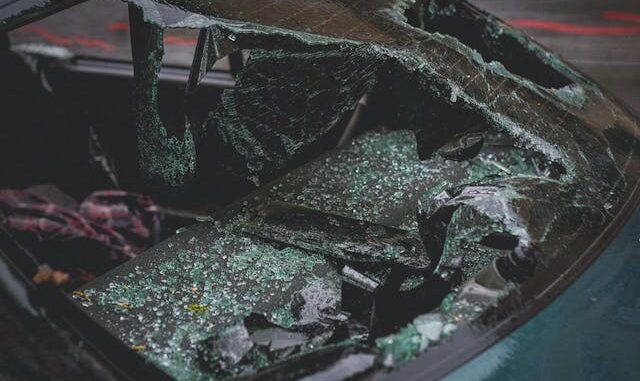
The aftermath of a car accident in Ontario is a whirlwind of emotions and logistical hurdles. One crucial decision you’ll face involves the fate of your damaged vehicle: will it be repaired or declared a write-off? Understanding how insurance companies approach this decision can empower you to navigate the process more effectively.
The Write-Off vs. Repair Equation: Balancing Costs and Safety
Insurance companies in Ontario don’t simply pick a magic number when deciding between write-offs and repairs. Instead, they follow a formula that balances the cost of repairs with the pre-accident value of your car, all while prioritizing safety. Here’s a breakdown of the key factors:
- Actual Cash Value (ACV): This represents the market value of your car immediately before the accident. Insurance companies use industry databases and consider factors like age, mileage, make, model, and condition to determine the ACV.
- Repair Cost Estimate: A qualified appraiser from your insurance company will assess the damage and provide a detailed estimate for repairs. This includes parts, labor, and any necessary adjustments.
- Salvage Value: Even a totaled car has some value for its parts. The salvage value represents the amount a scrapyard or parts dealer might pay for your car after it’s declared a write-off.
The Write-Off Threshold: When Repairs Outweigh Value
The decision hinges on a simple comparison:
- Write-Off: If the sum of repair costs and salvage value is greater than the ACV, your car is likely considered a write-off.
- Repair: If the repair costs are less than the ACV minus the salvage value, your car might be repairable.
Safety Concerns: A Higher Bar for Older Cars
While the cost equation plays a significant role, safety is paramount. Even if repairs fall within the ACV threshold, your car might still be declared a write-off if the damage:
- Compromises the vehicle’s frame, impacting its structural integrity.
- Renders airbags inoperable, compromising passenger safety in future collisions.
- Affects critical engine components, making the car unreliable or hazardous.
Insurance Considerations Beyond the Numbers Game
Here are some additional factors that might influence the write-off decision:
- Age of the Vehicle: Older cars with lower ACVs are more likely to be declared write-offs, even with moderate damage.
- Availability of Parts: If parts required for repairs are difficult or expensive to obtain, it can push the repair costs closer to the write-off threshold.
- Repair History: Extensive prior repairs might raise questions about the overall condition of the vehicle and influence the write-off decision.
Understanding the Write-Off Process in Ontario
If your car is declared a write-off, here’s what to expect:
- Settlement Offer: Your insurance company will propose a settlement based on the ACV, minus your deductible.
- Salvage Title: Your car will receive a salvage title, signifying it cannot be legally driven on the road.
- Selling the Salvage: You can sell the salvage vehicle to a scrapyard or a buyer interested in parts.
Navigating the Repair Option: What to Look Out For
If your car is deemed repairable, proceed with caution:
- Obtain Multiple Estimates: Don’t rely solely on your insurance company’s estimate. Get quotes from reputable auto body shops to compare costs and ensure a fair price.
- Diminished Value: Accidents can decrease your car’s market value. Consider negotiating with your insurance company for compensation for diminished value.
- Warranty on Repairs: Ensure the repairs come with a warranty to protect yourself against future issues related to the accident damage.
When to Seek Professional Help: Don’t Be Afraid to Advocate
While insurance companies have the final say, you have a right to understand their reasoning. If you disagree with the write-off decision or the settlement offer, here are your options:
- Negotiate with your Insurance Company: Provide documentation supporting your case, such as repair estimates from other shops.
- File a Complaint with the Financial Services Commission of Ontario (FSCO): The FSCO regulates insurance companies in Ontario and can mediate disputes.
Resources for Ontario Drivers
Here are some helpful resources for Ontario drivers navigating car accident repairs and write-offs:
- Financial Services Commission of Ontario (FSCO): https://www.fsco.gov.on.ca/
- Ontario Ministry of Transportation: [https://www.ontario.ca/page/ministry-transportation](https://www.
